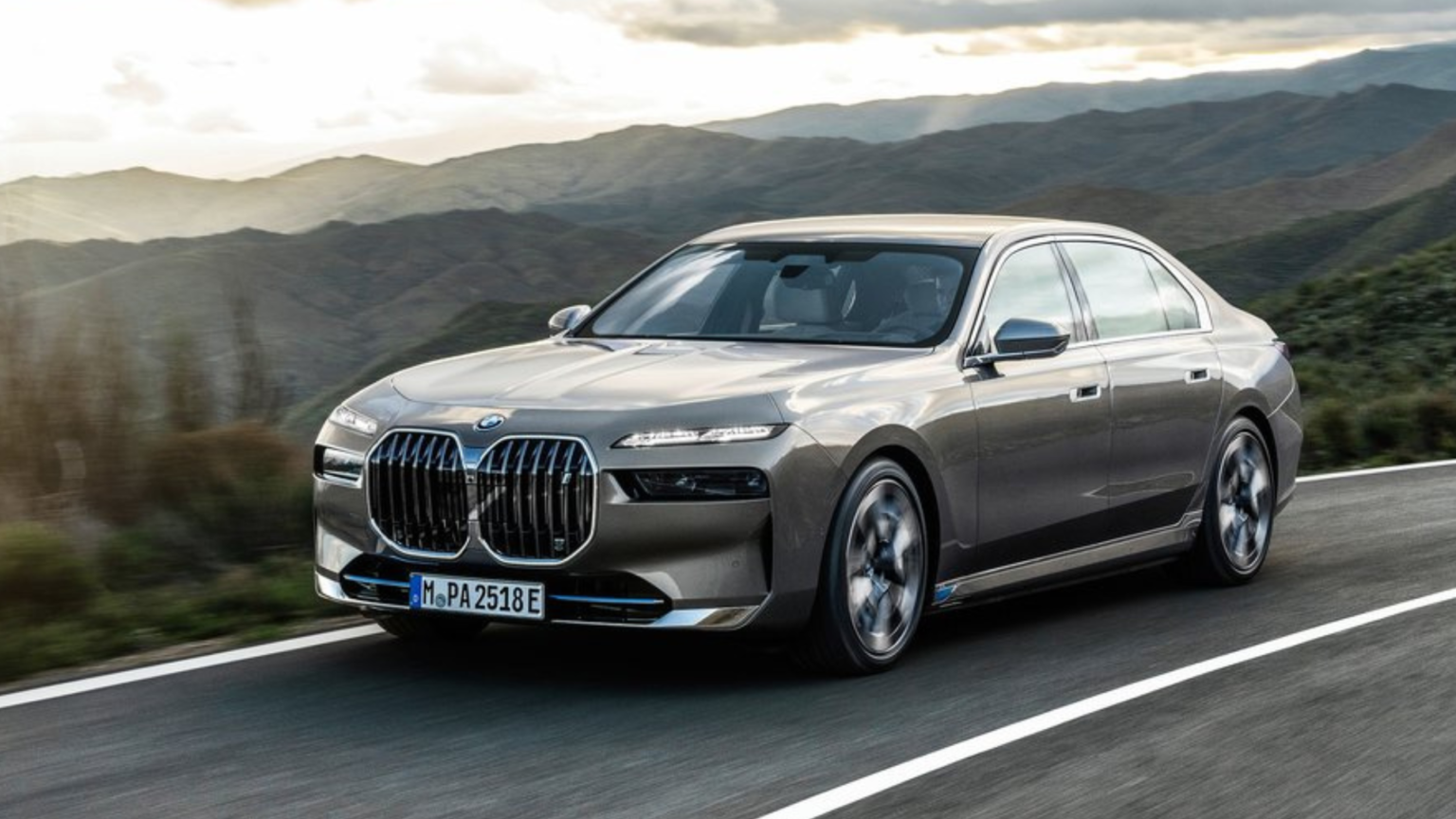BMW gets a lot of flak for its recent vehicle designs, many of which, to be polite, wear pretty controversial styling. But motorists around the world don’t seem to mind driving vehicles that look a little unconventional, particularly the Bavarian brand’s all-electric models. In fact, last year, BMW sold 368,475 EVs globally, way more than its primary rivals.
Outpacing Top Competitors
As reported by Inside EVs, that impressive total represents just BMW sales, it excludes Mini and Rolls-Royce, both of which offer EVs as well. But what’s even more remarkable about last year’s showroom performance is that in 2024, BMW sold more electric vehicles around the world than both Audi and Mercedes-Benz… combined.
Last year, the four-ring brand delivered more 164,000 electric vehicles, while the three-pointed star moved 185,059 of them. Combined, that works out to more than 349,000 units, a remarkable figure for these luxury brands, though that total still falls around 19,415 units behind BMW’s 2024 performance.
Indeed, around the world, BMW’s sales of all-electric vehicles increased by 13.5 percent last year compared to 2023. In comparison, Audi’s dipped by 8 percent, and Mercedes-Benz, well, the bottom practically fell out. This automaker’s year-over-year EV deliveries dropped by more than 23 percent.
BMW’s All-Electric Lineup
|
Model |
Base Price |
|---|---|
|
BMW i4 |
$57,900 |
|
BMW i5 |
$67,100 |
|
BMW i7 |
$105,700 |
|
BMW iX |
$75,150 |
Electric Powertrains Are Just Another Option
Why is the Munich-based automaker selling so many more electric vehicles than its big German rivals? It could be because BMW’s EVs are more conventional, particularly compared to the offerings from Mercedes-Benz. The i4 and i7 four-door cars are basically just battery-powered versions of the 4 and 7 series models, respectively. The ability to go electric is just that, an option. For drivers that want a 4 Series and would still prefer having a combustion engine under the hood, BMW will happily sell them one.
Mercedes-Benz, in comparison, opted to build dedicated electric models. The EQS four-door, for instance, is an all-electric flagship sedan, a battery-powered analog to the traditional S-Class. These two nameplates, however, are completely different, and many drivers may prefer the styling of the conventional model. To cheat the wind and improve efficiency, the EQS’s design is very smooth and rounded, the car’s shape brings to mind a well-used bar of soap, and that softness may not be something many drivers like.
Of course, Mercedes-Benz’s decision to develop EVs on dedicated platforms does offer benefits. Certain aspects of the vehicles can be optimized for greater efficiency or interior room if a combustion engine and all its associated hardware – things like a fuel tank, exhaust system, front-mounted radiator, and more – don’t have to be fitted. But any slight improvements this may provide don’t seem to matter, at least to drivers shopping for an all-electric German luxury vehicle.
In the coming years, BMW is aiming to keep up the pressure. Taking a page from rival companies, the automaker’s upcoming Neue Klasse models, including the i3 sedan and iX3 SUV, will ride atop a newly developed platform that’s designed specifically for electric vehicles. It will be interesting to see how drivers around the world react to these models, if they can keep BMW ahead of its biggest rivals.
Read the full article here


